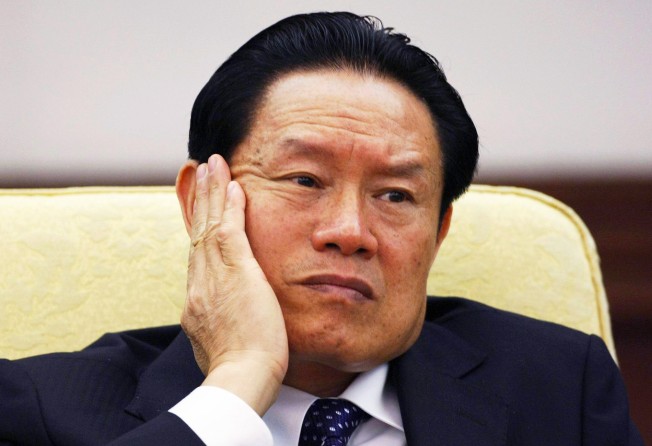Zhou Yongkang linked to mysterious ‘Xinjiang sage’ close to China's political elite
The powerful, such as Zhou Yongkang, courted Cao Yongzheng over claims he could see the future

Disgraced security tsar Zhou Yongkang once had a legion of trusted aides taking care of his graft schemes. But none was a match for the mysterious "Xinjiang sage" when it came to Zhou confiding about state secrets.
When the court in Tianjin read out the verdict on Zhou on Thursday, it was revealed he had handed six classified documents - five of which were top secret - to 56-year-old Cao Yongzheng.
Cao - dubbed the Xinjiang sage after the region where he grew up - has previously been identified by mainland media as a soothsayer, mystic and expert in qigong, a spiritual martial art similar to tai chi.
He is reported to have provided testimony against Zhou in a closed-door trial on May 22, Xinhua said, although it was unclear whether he had done so in person or by deposition, or if he was also in custody.
Cao has been described as a billionaire with an "extraordinary" ability to predict the future, who was courted by many of China's powerful senior officials.
A Southern Weekly report in 2013 said Zhou introduced Cao to other people as his "most trusted person". A Caixin report last year revealed Cao's close ties with senior officials in Sichuan province, including its former party secretary Li Chuncheng and former deputy governor Guo Yongxiang , as well as a range of senior corporate officials at Sinopec. Both Li and Guo have been accused of taking bribes and abusing power.
It was reported Cao first won Zhou's trust after taking care of his second son, Zhou Han, who worked at Sinopec and was known as a solitary character.
The Qingdao native, from Shandong province, was originally known as Cao Zengyu. He grew up in a large family and followed his father by earning a meagre wage working for the Xinjiang Production and Construction Corps.
He went on to graduate with a degree in politics from Xinjiang University in 1982. He tried different jobs, including working as a Communist Party schoolteacher and a publishing house editor. But he is best known for his "extraordinary powers" in predicting the future.

He reportedly bought an exclusive, secluded siheyuan in Beijing's Houhai district for over 100 million yuan, where he entertained top cadres, billionaires and others hoping to meet officials said to have stayed there.
Sources told Caixin the siheyuan was visited by at least four provincial-level officials in 2011. But the residence was investigated by anti-graft officials and shut down in July 2013 following allegations it had been used for corrupt purposes.
Cao is not the only self-proclaimed qigong master said to have had close links with senior mainland officials over the years.
Mainland media have reported that Wang Lin was implicated in a graft scandal two years ago. Wang is said to have ties with former Guangdong political advisory body chairman Zhu Mingguo and former railway minister Liu Zhijun . Both Zhu and Liu have been investigated for corruption.
But the best known qigong master is Zhang Baosheng, who found favour with senior Chinese officials in the 1980s and early 1990s.
In 1982, party officials transferred Zhang to work in Beijing because of his special talents. He rose to fame after reportedly demonstrating his special talent for identifying characters using only his nose in front of General Ye Jianying, then chairman of the National People's Congress Standing Committee.
But Zhang fell from favour in 1995 after he was accused by scientist He Zuoxiu and other magicians of faking tricks on television. He quickly disappeared and his whereabouts today remain unknown.
Beijing University of Technology economist Hu Xingdou said it was very common for senior officials to seek guidance from so-called masters with special talents in qigong or fung shui. "Usually the more senior an official is, the more superstitious he will be," Hu said.
"Officials often believe that the ability to preserve their prestigious positions is out of their own control. Their confusion over their destiny means that many of them turn to these so-called masters for spiritual support to point the way for them."
It was common for such masters to influence the decisions of senior officials, Hu said.